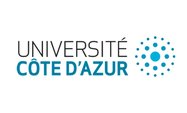From data base to big data
- Duration: 7 weeks
- Effort: 35 hours
- Pace: ~5 hours/week
- Languages: French
Description
Many data systems exist today. The primary objective of the course is to have a conceptual grid of the different data systems by deepening the main standards.
A multidisciplinary introduction allows learners to have a strategic vision of the future of information systems around the concepts of "mobiquity and BIG DATA". Then, we present the fundamental concepts of databases and BIG DATA with their paradigms and properties in support: TIPS / ACID, RICE, WHAT / BASE and Google CABS. The Top Down and Bottom Up approaches to data integration then make it possible to explore the different paradigms of data systems.
This course is a fundamental prerequisite for all computer science students (Bachelor and master) wishing to do a Master in computer science in the Data economy like the MBDS (Mobiquity, Big Data and Systems Integration) from University Côte d’Azur (formerly University of Nice Sophia Antipolis). It is also intended for IT professionals who want a clarification of the concepts of databases and Big Data.
This is a weekly course over 7 weeks. Each week, 4 to 9 short video sequences will be offered to participants. These sequences will be accompanied by questions and practical work, as well as discussion forums. MCQs will evaluate the knowledge at the end of each week. The teaching team will speak once a week to answer the most frequent questions of the forum through an online conference.
The weekly MCQs and the peer-reviewed practical work will be used to successfully issue the follow-up certificate.
Format
To follow this course, you have the choice between two packages :the DISCOVERY package and the CERTIFYING package:
DISCOVERY Package
If you choose this package, you will have access to the videos of the course, the quizzes and the exchanges in the forums. This package will not deliver a certificate. Registrations are possible from now and are subject to no conditions.
CERTIFYING Package
In addition to the activities proposed in the DISCOVERY package, the CERTIFYING package will allow you to obtain a "certificate" issued by the University Côte d'Azur with ECTS (European Credit Transfer System). If you subscribe to this package, in addition to videos and quizzes, peer-reviewed exercises will allow you to share and consolidate your skills, a video tutoring with the teacher from one to two hours each week will allow you to to ask him questions live ; Finally, a remote monitored exam will be offered at the end of the MOOC in order to obtain your certificate.
Peer reviews
Video tutoring live weekly
Individual examination monitored remotely
Certificate issued by FUN and the Côte d’Azur University
Price 500 EUR
Whatever the package chosen, the duration of the course is 7 weeks. If you follow the discovery package : plan to spend 3 to 5 hours per week. If you follow the certifying package : 5h per week + 1h of supervised exam are necessary.
Prerequisites
The only prerequisites are from a theoretical point of view the mathematical bases of set theory and first order logic and basic knowledge of system architecture and administration of Oracle SQL databases.
Assessment and certification
Only the certifying package will provide a "certificate" by FUN and the Côte d’Azur University to learners having passed the supervised exam.
Course plan
- This module is a strategic multidisciplinary introduction around big data systems with definitions of key concepts (data paradigm, data lake, etc.) and disruptive supporting technologies which will be useful during this course.
- There exists a plethora of big data management systems. In the first part of the course, we propose a classification of these systems using data paradigms we illustrate with SQL standard (TIPS, ACID and RICE properties). The second part concerns Codd’s relational data model which represents a formal unifying foundation anfor big data management systems.
- This course is devoted to SQL standard presentation (including the Transaction concept) which will be the Esperanto for big data systems with a focus here on relational structured data model
- Date’s manifesto is the neutral symmetric of Codd’s model for SQL2 for hybrid object-orient data bases. We clarify the concepts of objects (OID, VALUE) which will be useful for N.O.SQL systems.
- Object-oriented data models based upon Bancilhon’s manifesto was proposed for object programmers. ODMG is a data base extension of OMG (Object Management Group) proposed on top of Java, C++ and Smalltalk
- SQL3 is the fusion of Date’s and Stonebraker’s manifestos whose salient features are presented and discussed in this module.
- In this module we introduce N.O.SQL systems around KEY-VALUE (Hadoop, BLOB, Json Document, attributes) and GRAPHS and NEW SQL systems and identify the expected functionalitie of SQL for polystores systems with “the category theory” being a unifying formal framework.L.
Course team
Organizations
License
License for the course content

Attribution-NonCommercial-NoDerivatives
You are free to:
- Share — copy and redistribute the material in any medium or format
Under the following terms:
- Attribution — You must give appropriate credit, provide a link to the license, and indicate if changes were made. You may do so in any reasonable manner, but not in any way that suggests the licensor endorses you or your use.
- NonCommercial — You may not use the material for commercial purposes.
- NoDerivatives — If you remix, transform, or build upon the material, you may not distribute the modified material.
License for the content created by course participants

All rights reserved
"All rights reserved" is a copyright formality indicating that the copyright holder reserves, or holds for its own use, all the rights provided by copyright law.


